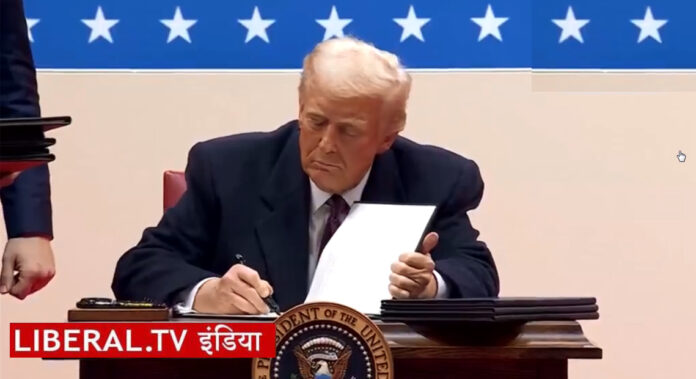US President Trump Sued Over Birthright Citizenship Order
A coalition of 22 Democratic-led states, civil rights groups, and immigrant organizations has sued US President Donald Trump over his executive order to end birthright citizenship. The lawsuits, filed in federal courts in Boston and Seattle, claim the order violates the US Constitution by attempting to deny citizenship to children born on US soil to undocumented parents or non-citizen, non-permanent resident fathers.
Massachusetts Attorney General Andrea Joy Campbell stated that if upheld, the order could strip citizenship rights from over 150,000 children born annually in the US. The order also targets children born to mothers lawfully present on temporary visas if the father lacks citizenship or lawful permanent residency.
Birthright citizenship is guaranteed under the 14th Amendment, which grants citizenship to all individuals born in the US, regardless of their parents’ immigration status. This principle was upheld by the US Supreme Court in the 1898 Wong Kim Ark v. United States case, but the court has not ruled on its applicability to children of undocumented immigrants.
Legal experts argue that Trump cannot unilaterally end birthright citizenship through an executive order, as such a move would face inevitable court challenges and likely require a constitutional amendment. Saikrishna Prakash, a constitutional law professor, noted that the order could trigger litigation and eventually reach the Supreme Court.
The lawsuits emphasize that denying citizenship would block access to federal programs, lawful employment, and voting rights for affected individuals. Trump has long criticized “birth tourism” and the citizenship rights of children born to undocumented immigrants.
A constitutional amendment to end birthright citizenship would require significant bipartisan support, which Republicans currently lack in Congress.



